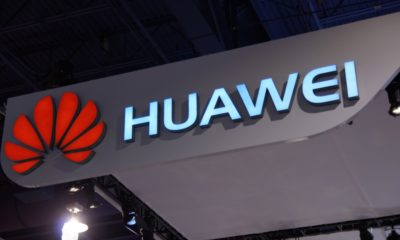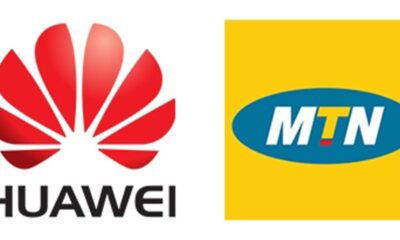- FG, Huawei Awards 1000 Nigerian Civil Servants
The Federal Government of Nigeria in collaboration with global leading ICT firm, Huawei Technologies Company Nigeria Limited, closed out the training for 1000 Nigerian civil servants under the ICT for change programme with a closing award ceremony.
The ceremony which held at the Abuja International Conference Centre, had in attendance the office of the Secretary to the Federal Government (SGF), who was represented by the Permanent Secretary General Services Office, Mr. Olusegun Adeyemi Adekunle, the Minister of Communications, Dr. Isa Pantami, the office of the Permanent Secretary of the Federal Ministry of Interior represented, the Honourable Ambassador of the People’s Republic of China to Nigeria, Mr. Zhou Pinhjian, as well as the Vice President of Huawei Technologies, Mr. Chen Zhijun and other top management of the company.
The ICT for Change program is a Memorandum of Understanding (MoU) signed between the Federal Government of Nigeria and Huawei Technologies Company Nigeria Limited as part of Huawei’s CSR initiatives aimed at supporting the automation of government processes in Nigeria. The program had two phases which were to train 2000 Nigerian youths and 1000 Nigerian Civil Servants on core ICT capacity. On the 25th of October 2018, the company signed the MoU to proceed on the second phase of the training for the civil servants and started the program on the 14th of January 2019. The program which had 19 batches of civil servants was completed on the 28th of June 2019 having trained a total of 935 public servants drawn from 101 Ministries, Departments and Agencies (MDAs).
At the closing ceremony, the Secretary to the Federal Government (SGF), Mr Boss Mustapha, represented by the Permanent Secretary General Services Office, Mr. Olusegun Adeyemi Adekunle, expressed his delight on the successful conclusion of the training program. He stated that “on behalf of the Federal Government of Nigeria, I wish to sincerely thank Huawei Technologies for this partnership in fulfilling their corporate social responsibility as a reputable global organization. This gesture is highly commendable and we look forward to more of such programmes that seek to compliment Federal Government’s commitment to deliver good governance.”
“The ICT For Change program has tremendously increased the knowledge of the participants in the areas of Human Capacity building in developing ICT trends, Innovative ICT & Building Smart City, Internet of Things Trends and Solutions, E-Government, Cloud technology, web design and maintenance, Microsoft Word training, Software-Defined-Networking (SDN), etc.” he added.
The SGF also stated that the programmes were also in alignment with the Federal Civil Service Strategy and Implementation Plan (2017 -2020) which seeks to enhance the capacities and capabilities of Ministries, Departments and Agencies (MDAs) in their performance and delivery systems.
The Minister of Communications, Dr. Isa Pantami, expressed his appreciation to Huawei Technologies for its continuous partnership with the Nigerian government – ministries, departments and agencies. He stated that “Capacity building is critical to achieving digitization in the country and Huawei Technologies through this training is contributing significantly to the mandate of the present administration to drive a fully digital government ecosystem”. According to the Honourable minister, trainings as this which improve digitization also significantly contribute to poverty alleviation in the country which is a core mandate of the present administration.
The Honourable Ambassador of the People’s Republic of China to Nigeria, Mr. Zhou Pinhjian, acknowledged that “Civil servants play an essential role in the effective and efficient running of government. With the ever wider spread and application of ICT in our society, civil servants everywhere are confronting more and more ICT-related challenges in formulating and implementing policies.”
“I wish to express my sincere appreciation to the Office of the Secretary to the Government of the Federation (OSGF) for its deep trust in Huawei, an integral part of Nigeria’s ICT ecosystem and a leading ICT giant of the world which we Chinese are very proud of. The efforts made by the OSGF in partnership with Huawei to enhance ICT training are highly commendable, as capacity building initiative is one of the eight major initiatives announced at the FOCAC Beijing Summit last September.” The ambassador added.
He assured a good working relationship between the both countries stating that “China remains committed to enhancing exchanges and cooperation between competent authorities of China and Nigeria, sharing good practice in each other’s ICT development, seizing the opportunity presented by the digital economy, encouraging companies to carry out cooperation in ICT infrastructure, the internet and the digital economy, and working together to narrow the digital divide and promote the building of an information society in Nigeria and China.”
Huawei Technologies Vice President, Mr. Chen Zhijun, stated that “In Nigeria, ICT has played a crucial role in providing the requisite tools that support the diversification of the economy. ICT has contributed over 10% of Nigeria’s GDP. Furthermore, World Economic Forum predicts that by 2025, some 1.9 million jobs and $20 billion in additional GDP will accrue to Nigeria as technology continues to offer people new opportunities to engage in online platform work and transition from informal to formal jobs.”
“The ICT for Change program is a part of Huawei Nigeria’s efforts in skill transfer and talent fostering. At Huawei, we believe that people are the most important and valuable asset. Investment in people is investment in future. Huawei Nigeria is determined and committed to walking this journey with Nigerians to boost availability, accessibility and affordability of ICT services to turn digital inclusion into social and economic inclusion, with our vision and mission to bring digital to every person, home, organization for a fully connected and intelligent world.”


 Naira4 weeks ago
Naira4 weeks ago
 Naira4 weeks ago
Naira4 weeks ago


 Naira4 weeks ago
Naira4 weeks ago




 Naira3 weeks ago
Naira3 weeks ago
 Commodities4 weeks ago
Commodities4 weeks ago


 News4 weeks ago
News4 weeks ago


 Banking Sector4 weeks ago
Banking Sector4 weeks ago
 Travel4 weeks ago
Travel4 weeks ago





















